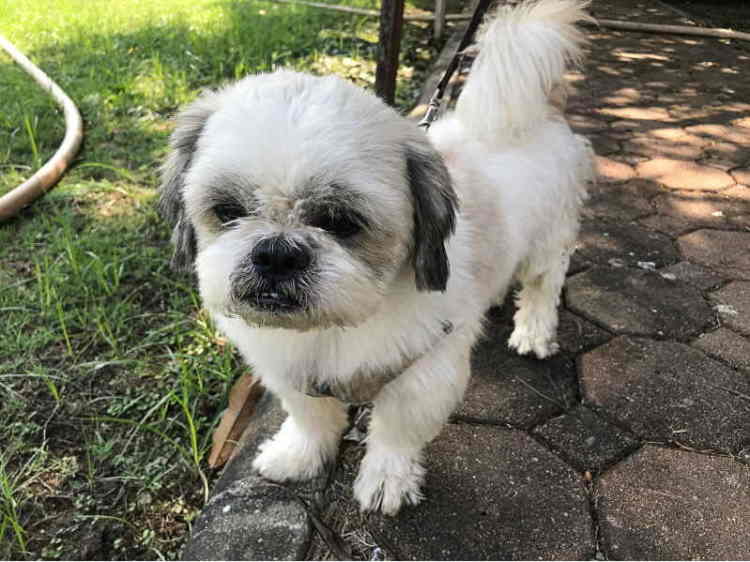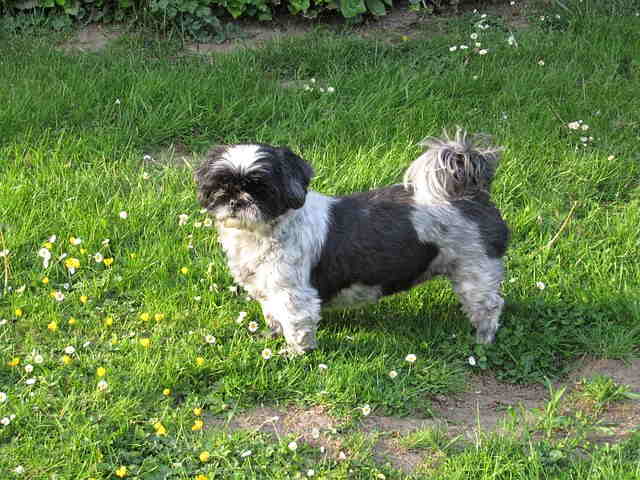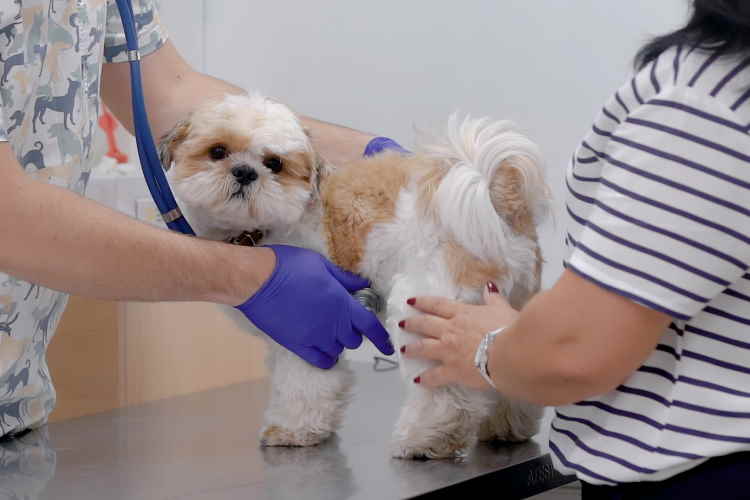10 signs your Shih Tzu is stressed and how you can help calm them
BY MOLLY | EVERYTHINGSHIHTZU.COM
Dogs have a natural ability to sense your emotions and will often comfort you during tough times. It's hard to stay in a bad mood when you're greeted at your door with so much love and adoration.
Just like humans, dogs feel many different emotions. However, they can't verbally communicate to you when something is wrong. So you must rely on your senses and observations to know when your dog isn't feeling their best.
Dogs can have stress and anxiety, and both can have similar symptoms, but there is an important difference between them. When your dog is stressed, it's usually a response to something specific happening and may pass once that particular thing is removed.
In contrast, anxiety is a persistent emotion that doesn't go away as easily.

If the triggers that cause stress in your dog are not removed, it could potentially turn into a long term chronic condition.
So it's important to understand the different signals your pup sends when they're stressed so you can help calm them when needed.
Below are several signs of stress in dogs that could help clue you in to how your pup is feeling.
Signs that can give you a heads-up that your shih tzu is stressed
1. Your dog tucks their tail between their legs
If your pup is standing or walking with their tail tucked between their legs, they might be stressed.
Or, they just had an accident on your favorite rye, and they know they made a mistake.
If you can't find any signs of mischief at your pup's party, then their tucked tail is most likely indicating they are stressed out about something.
2. Your pup has the shivers
Unless your pup is cold, shivering is often a sign of nervousness or anxiety.
Small dogs especially seem to get the shivers when they are stressed or frightened. If your Shih Tzu has the shakes, it's time to investigate.
3. Your Dog is whining
If your dog keeps whining, rule out practical causes, which are usually things they want.
These things could be items like food, water, their favorite toy, your bed, a potty break, and other similar doggy necessities.
Ensure your dog has their needs met; if they go on to whimper, they're likely stressed.
4. Your pup is cowering
If your pup is cowering, especially if it accompanies a tucked tail and shivering, they are likely really nervous.
Assess the situation and your dog's immediate environment to see if something is out of the ordinary that could be freaking out your pup.
5. Your dog is licking their lips a lot
Sure, dogs love to lick pretty much everything. But, if your dog is licking their lips constantly, this could be a sign that they are stressing (unless you just gift their a spoonful of peanut butter).
Licking their lips is one way that your pup uses to self-soothe. Another way your dog tries to calm themselves down is yawning, so these actions are good signals that your dog feels antsy.
6. Your Dog Doesn't Seem to Want to Eat Anything
A dog might not feel like eating every now and then, but if your pup is showing no interest in their food, take note.
If your dog is not eating and seems to have lost their appetite, this can signal they are nervous about something.
Of course, loss of appetite can also signal that your dog is feeling ill, so watch their closely for other symptoms, and if necessary, talk to your vet.
7. Your pup is scratching constantly
Like continuous licking, if your Shih Tzu keeps scratching, it can be a sign that they are stressed.
Rule out issues like allergies, fleas, and similar problems that could cause your pup discomfort and itchiness. If none of these are to blame, it's likely your pup is anxious about something.
8. Your dogs eyes are bulging, aka "whale eyes"
No doubt, you've noticed your pup's big, round, adorable eyes, but if you can see the whites around the iris, your dog is giving you the whale eye.
This bulging eye effect often signals that your dog is anxious or stressed out about something.
9. Your pup is sleeping more than usual
Dogs love to laze about, but if your dog is snoozing more than usual, keep an eye on them.
If it's a sudden change in their typical behavior, this is a good indicator that something is going on with your pup. Either they're not feeling well, or they is stressed.
10. Your normally sweet dog gets aggressive
If your ordinarily docile dog is suddenly showing signs of aggression or getting snippy, they could be reacting out of stress.
Aggressive behavior is a situation that you should address with your vet immediately to fix it fixed.
What do you do if your dog is stressed?

First, if you pick up on signals that your pup is stressed out, you need to figure out why.
Has there been a change in your pup's environment? Is your Shih Tzu suffering from separation anxiety? Has there been a change in your schedule that could be causing your dog's anxiety?
Once you know the reason for your dog's stress, you can help them overcome it.
Some potential solutions might be providing your pup with some engaging and stimulating toys.
While you are away from them, placing something with your scent in their designated spot (their dog bed or favorite of the corner of the couch) may calm them.
Several products are also designed to help dogs calm down, like Adaptil plug-ins, lavender sprays, or calming tablets.
Early socialization and proper training can also play a vital role in your pup's overall emotional development.
If your pup seems to get stressed often, you might want to discuss the situation with your vet.
It's essential to make sure there are no underlying conditions in play that could be adding to your dog's anxiety.
Could you be causing your Dog's stress?
If you can't seem to identify the cause of your pup's stress, it might be time to think about your own feelings.
Remember, dogs are human-emotion detectors; they sense what you are feeling. Your puppy doesn't only sense what you are feeling but likely mirrors your emotions.
In other words, if you're stressed, your pup is going to be stressed.
When you are around your pup, concentrate on being more aware of your behavior. Keep your movements slow and calm. Give yourself extra time to get ready when you're leaving the house, so you're not rushing out the door.
These little tweaks will not only help you lessen your own stress, but they will also help keep your pup calm too.
The most important thing is helping your pup through whatever difficult time they are having to make them feel better.
References:



